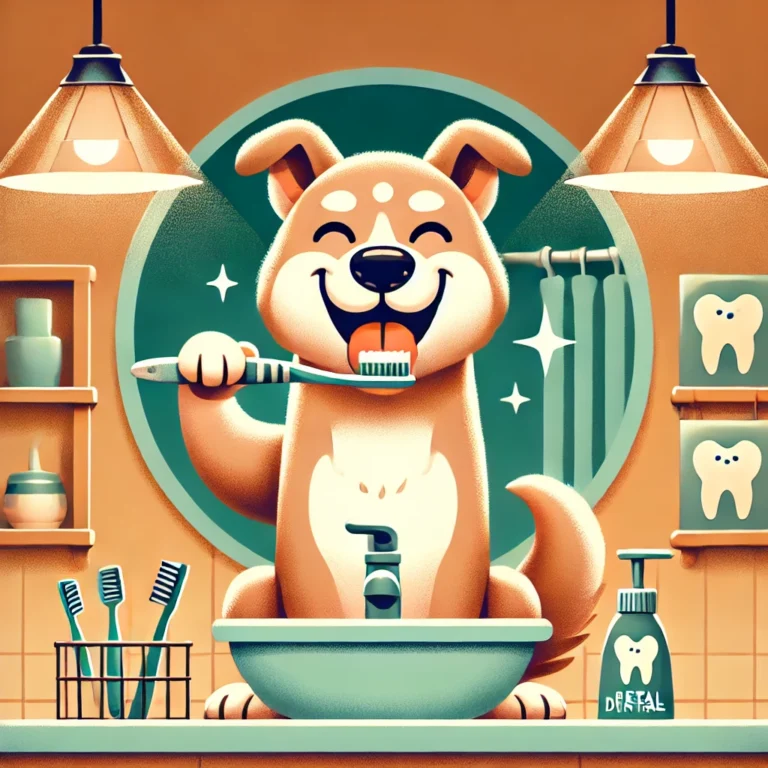Common Health Issues in Senior Pets and How to Treat Them
I might receive a small commission if you click on our links and make purchases. However, please keep in mind that this does not affect reviews, product comparisons, or recommendations. We try to keep things fair and balanced to help you choose your needs best. Clicking the link does not affect your total cost.
Introduction:
As our pets age, they become more vulnerable to various health conditions. Did you know that over 50% of pets over the age of 7 suffer from at least one chronic health issue? But don’t worry-many of these conditions can be managed properly! In this guide, we’ll explore the common health issues senior pets face and provide actionable advice on how to treat them, ensuring that your furry friend enjoys their golden years to the fullest.
Arthritis and Joint Pain:
Arthritis is one of the most common health issues in senior pets, especially dogs and larger breeds, though it can also affect cats. Over time, the cartilage that cushions the joints begins to wear down, leading to pain, inflammation, and reduced mobility.
You should look for symptoms such as limping, stiffness when getting up, or hesitating to jump or climb stairs. In severe cases, your pet may whimper or avoid movement altogether.
Treatment options can include medications like NSAIDs (Non-Steroidal Anti-Inflammatory Drugs), glucosamine and chondroitin supplements, possibly CBC products, and weight management, which can help reduce joint pain. Physical Therapy, laser therapy, and acupuncture are great options for relieving pain and maintaining flexibility. Swimming or gentle walks are excellent low-impact exercises for keeping them active. Regular veterinary health checkups help monitor arthritis progression, allowing adjustments in treatments to be made.
Dental Disease:
Dental health tends to decline as pets age, often going unnoticed until it becomes a significant issue. Without proper care, bacteria from dental disease can enter the bloodstream, potentially affecting organs like the heart and kidneys.
Signs of dental disease include bad breath, difficulty eating, especially dry food, red or swollen gums, and tooth loss. A lack of appetite can also indicate pain caused by infected teeth or gums. Regular toothbrushing with a pet-safe toothbrush, toothpaste, dental chews, and annual cleanings can prevent plaque buildup. Severe cases of dental disease may require tooth extractions by a veterinarian. Dental disease can cause serious complications left untreated, so addressing it early on is critical to maintaining your pet’s overall health.
Obesity:
As pets age, their metabolism slows down, and they may become less active, leading to weight gain. Obesity can exacerbate other health issues such as arthritis, diabetes, and heart disease.
Obesity in senior pets is linked to diabetes, high blood pressure, and joint issues. Excess weight stresses vital organs and can shorten your pet’s lifespan. To help with weight management, you can adjust their diet by switching to senior-specific pet foods, which are lower in calories. Controlled feeding and monitoring treats help to prevent overeating. Exercise, even light walking, is crucial to burn calories and maintain mobility. Do not hesitate to contact your veterinarian, who can guide you in creating a weight management plan and ensure your pet’s diet meets its nutritional needs.
Kidney Disease:
Chronic Kidney Disease (CKD) is common in older pets, particularly cats. The kidneys lose their ability to filter toxins from the blood, leading to a buildup of waste and eventual organ failure.
Symptoms to monitor include increased thirst, frequent urination, weight loss, and lethargy. Early detection is critical for effective management. Routine blood work and urinalysis can help catch kidney issues early. Treatment includes specialized diets designed to reduce the kidney workload, medications to manage symptoms, and ensuring your pet stays well-hydrated. While CKD is progressive, many pets can live comfortably for several years after diagnosis with early intervention and consistent care.
Heart Disease:
Heart disease in senior pets can manifest as valve disease, congestive heart failure, or cardiomyopathy. These conditions can affect your pet’s ability to pump blood efficiently, leading to fatigue and other health complications.
Warning signs that your pet has heart disease are coughing, shortness of breath, weakness, and exercise intolerance. Pets may also exhibit fainting spells or abdominal swelling due to fluid buildup. Veterinarians can use X-rays, echocardiograms, and blood pressure tests to detect heart issues early. Depending on the type of heart disease, treatment may include medications and regular exercise tailored to your pet’s capacity. Weight control is vital to reduce the heart’s workload.
Cognitive Dysfunction (Pet Dementia):
Cognitive dysfunction syndrome (CDS), similar to dementia in humans, is a neurodegenerative condition seen in aging pets. It impacts their memory, learning, and awareness, causing behavioral changes.
Signs of CDS are pets may become disoriented, seem confused in familiar environments, and exhibit anxiety. Changes in sleep patterns and loss of house-training skills are also common. There are no cures, but treatments like anti-anxiety medications, nutritional supplements with Omega-3s, and environmental enrichment can help to slow the progression and improve quality of life. Interactive toys, puzzles, and consistent routines can help to stimulate their minds and reduce confusion.
Vision and Hearing Loss:
As pets age, their senses may dull. Vision and hearing loss are common, with conditions like cataracts, glaucoma, or retinal degeneration affecting older pets.
Signs of sensory loss include bumping into objects, becoming easily startled, or not responding to calls, which could signal vision or hearing loss. If your pet experiences that, you can help by creating a consistent environment at home where they can navigate without confusion. Avoid moving furniture or leaving obstacles in their path. Some conditions, like cataracts, can be treated with surgery, while others may require managing symptoms. Create a safe space for your pet by using visual or auditory aids to help your pet adapt to sensory loss and keep your home free of hazards.
Cancer:
Cancer is unfortunately prevalent in senior pets. Types of cancer can range from lymphoma to skin cancer and bone cancer.
Symptoms to watch for are lumps, unexplained weight loss, bleeding, or changes in appetite and behavior that could indicate cancer. Diagnostic tools commonly used by your veterinarian to diagnose pet cancer are biopsies, x-rays, and ultrasound. Depending on the type and severity, treatments may include surgery, chemotherapy, radiation, or palliative care to maintain comfort. Early detection increases treatment options and chances for remission, so regular vet checkups are essential.
Diabetes:
Diabetes in pets, particularly in senior cats and dogs, occurs when the pancreas can’t produce enough insulin, leading to unregulated blood sugar levels.
Signs of diabetes are increased thirst, frequent urination, unexplained weight loss, and lethargy. Management of diabetes can include insulin injections, specialized diets, low carbohydrates, and regular blood glucose monitoring are key to managing diabetes. With diligent management, diabetic pets can live normal lives. Regular vet visits to adjust insulin dosages and monitor blood sugar are crucial.
Urinary Tract Infections (UTIs):
Senior pets are more prone to urinary tract infections due to weakened immune systems or underlying conditions like kidney disease.
Symptoms of a UTI include frequent urination, accidents in the house, discomfort while urinating, or blood in the urine, which may signal an infection. A veterinarian will perform a urinalysis and prescribe antibiotics based on the results to diagnose a UTI. In some cases, dietary changes may help prevent future infections. Ways to help with prevention include ensuring your pet stays hydrated and has regular vet checkups, especially if it’s had recurrent infections.
Conclusion:
Caring for a senior pet comes with challenges, but many common health issues can be managed effectively with early detection and proper treatment. Regular veterinary check-ups, a healthy diet, and appropriate care can help extend your pet’s life and ensure they remain comfortable in their senior years.







